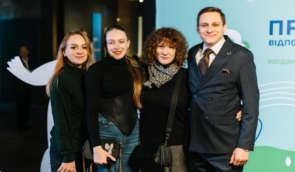An evening of remembrance at Docudays: how civil society copes with the losses of war
On 10 June 2025, the MISTRIKA Contemporary Art Gallery hosted an evening of remembrance and reflection entitled “How civil society copes with the losses of war”. The event was organised by the NGO Docudays and the Human Rights Centre ZMINA as part of the Rights Now! Human Rights Programme of the 22nd Docudays UA International Human Rights Documentary Film Festival.
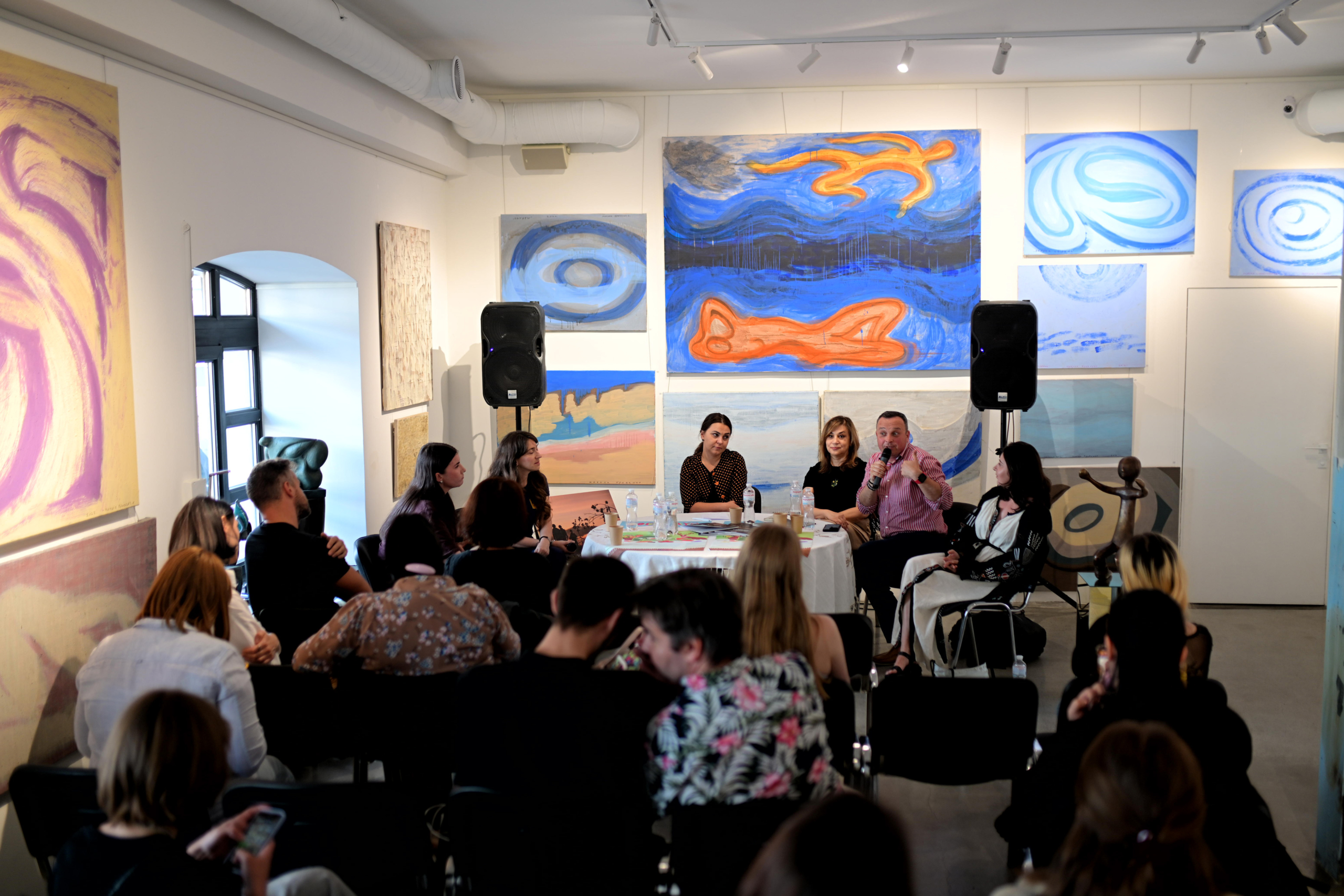
This evening is dedicated to the remembrance and reflection on the irreparable losses suffered by Ukrainian civil society as a result of the full-scale armed aggression of the Russian Federation. Between February 2022 and December 2024, Ukraine lost at least 121 representatives of the most active part of its population – human rights defenders, volunteers, civil activists and journalists. These lives cut short leave behind a legacy – stories, names and a fight that must be continued.
Tetiana Pechonchyk, Head of the Board of the Human Rights Centre ZMINA, spoke about the report-memorial in memory of the victims of Russian aggression – “Civil society and media losses in three years of Russia’s full-scale invasion of Ukraine”.
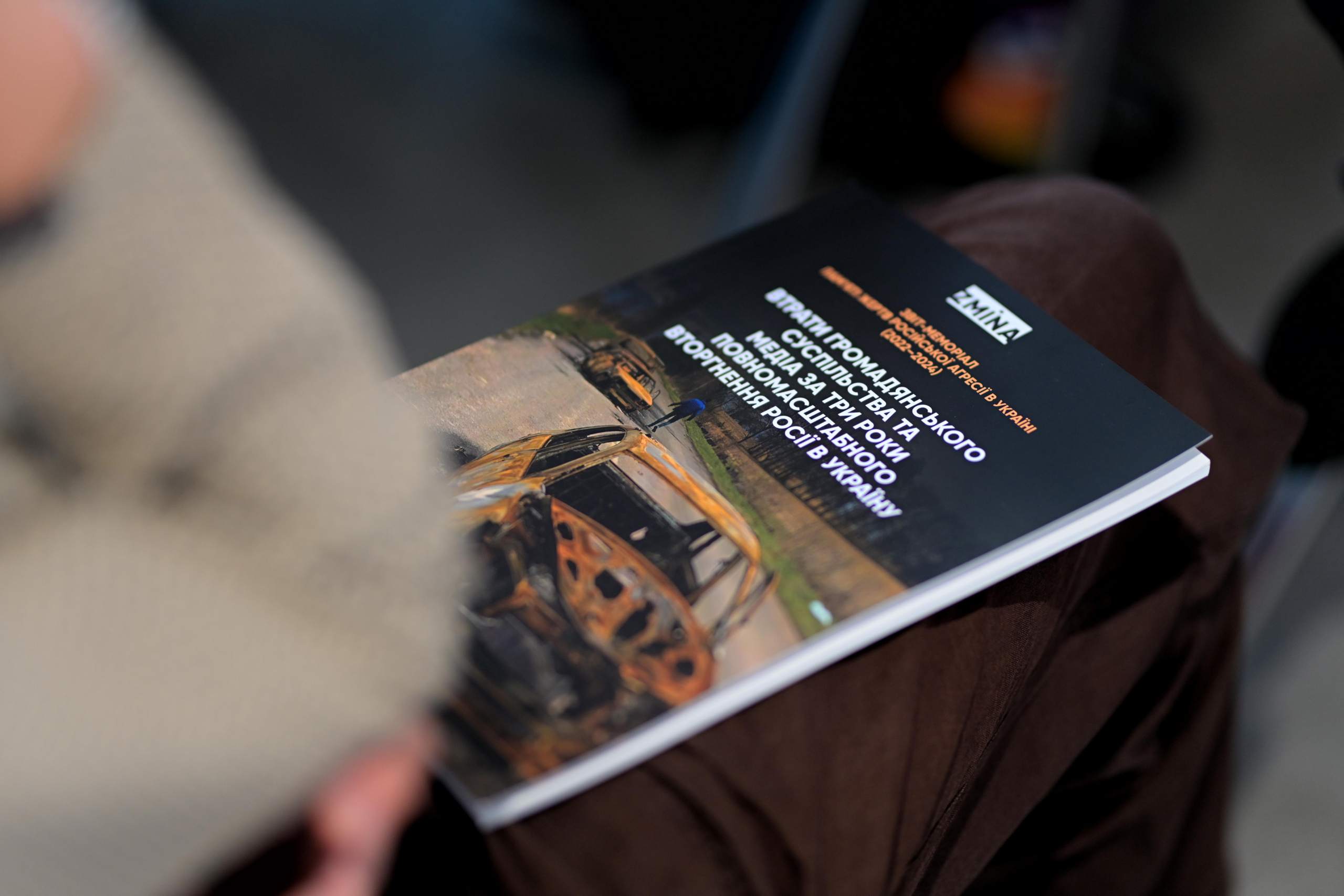
“The report covers the first three years of full-scale Russian aggression and documents 121 cases of deaths of media representatives and civil society members. The highest number of deaths occurred in 2022 – 81 people, 58 of whom died in March. Geographically, the highest number of deaths was recorded in the Kyiv (33 people) and Donetsk (33 people) regions, as well as in the Kharkiv region (24 cases). Among the dead, 94 were volunteers, 18 were journalists, seven were civil activists, and two were human rights defenders. Most of the deceased were men (88 individuals), and 102 people were citizens of Ukraine. This report is an important step in documenting these losses and preserving the memory of the contributions and ideas of those who died,” said Tetiana Pechonchyk.
She emphasised the importance of documenting these stories, as it means that the families of the deceased are remembered. The Head of the Human Rights Centre ZMINA added that, unfortunately, as long as the war continues, the report will be expanded: “We are aware that this report remains incomplete as long as the war continues“.
 Tetiana Pechonchyk
Tetiana PechonchykInna Varenytsia, journalist, videographer, freelancer, who has been covering the war with Russia for 11 years, the former wife of Maksym Levin (a well-known Ukrainian photographer who was killed by Russian invaders in the village of Moshchun near Kyiv at the beginning of the full-scale invasion), talking about the death of her former husband, shared her painful experience of losing a loved one, a friend, and the father of their son: “We all want to live long lives, and we don’t hope or expect that someone young will die. And so it happened that I had to write about Maks’s death. I have experience writing obituaries, but I never thought I would write about our young colleagues, young friends. It was a difficult moment for me to briefly describe how and where he died,” Inna Varenytsia shared.
She also noted that during the investigation into Maksym’s death, conducted by Reporters Without Borders, she could not work as a journalist because she was involved in the case as a close friend.
 Inna Varenytsia
Inna VarenytsiaThe director of the publishing house Prostir and close friend of Radio Liberty journalist Vira Hyrych, who died as a result of a Russian missile strike on a residential building in Kyiv, Olena Nuzhna, spoke about friendship, childhood and Vira’s life path that led her to journalism. Vira Hyrych worked for various television channels and Radio Liberty. Remembering Vira, Olena said that she still cannot delete the numbers of the deceased from her phone, communicating with them in her thoughts: “Unfortunately, no one chooses their fate. I am one of those people who cannot delete the numbers of people who, unfortunately, are no longer with us. I communicate with them in my thoughts. I feel that they are somewhere far away. And a phone number is like a connection that at some point you will be able to call. We remember and hope for our victory, that the people who died did not die in vain“.
 Olena Nuzhna
Olena NuzhnaCo-founder of the Memorial Platform, media manager and journalist Lera Lauda, responding to a question about the “end point” in memorialisation work, noted that it is a task that will take decades: “Although it is painful and stressful, families often come to us when they are ready to talk about their loss. And for them, this is also one of the steps in their healing and return to some kind of life, which is, of course, not what it used to be. And you just realise that you are actually doing something very meaningful and important despite the pain and suffering“.
The co-founder of Memorial also added that their team is eager to open a modern memorial space: “Currently, we only have a digital project, but we want to open a physical, modern space“.
 Lera Lauda
Lera LaudaAnton Liahusha, expert in public history and dean of the Faculty of Social and Humanitarian Master’s Studies of the Kyiv School of Economics, reflected on the differences in approaches to documentation and memorialisation between the academic community and journalists, as well as the process of memorialisation in the digital age. He emphasised the concept of “presence of absence” in the context of memory: “We always make public those and that which no longer exist“. He also stressed the importance of “living memory”: “Because in the end, we are alive when they want to destroy us“.
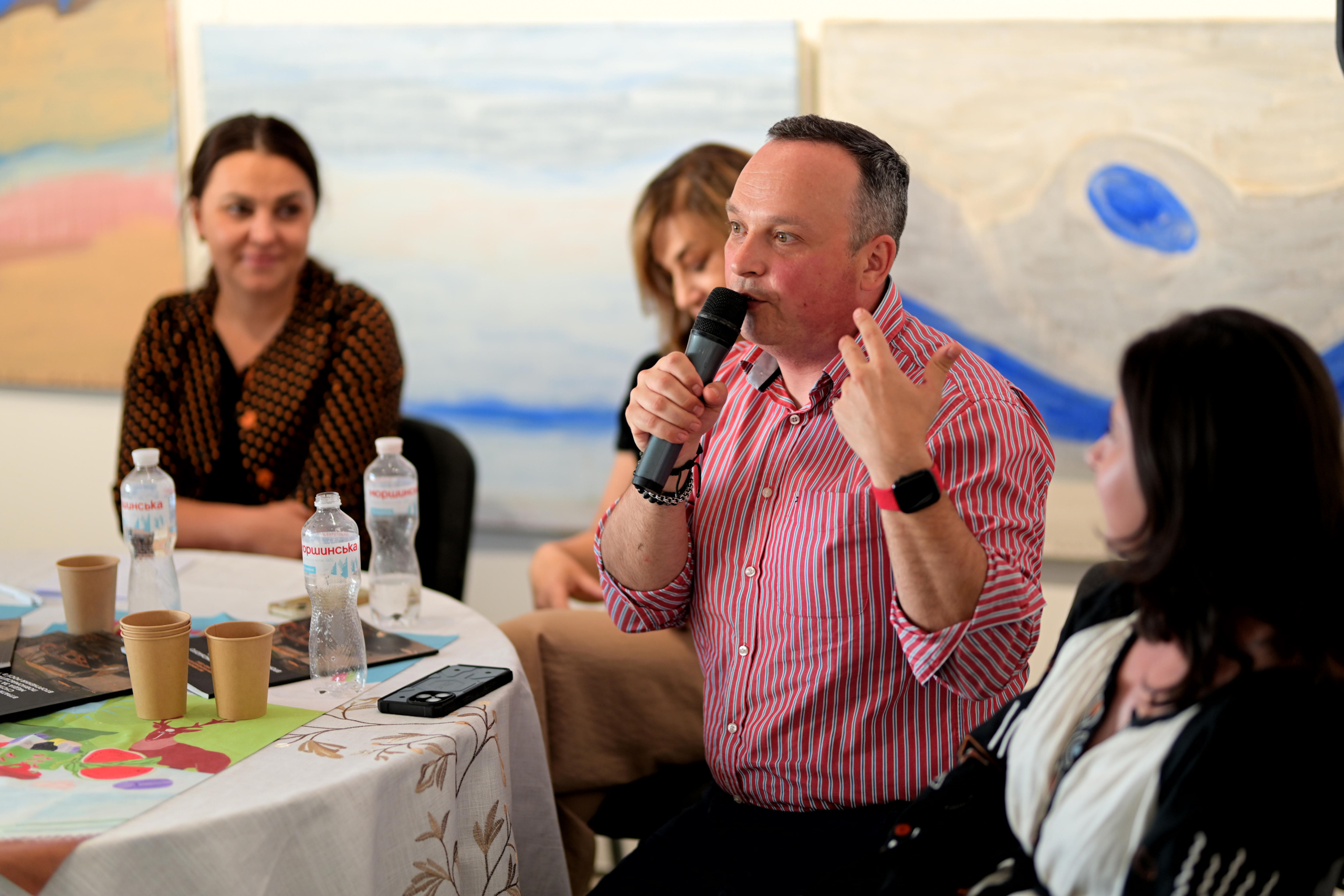 Anton Liahusha
Anton LiahushaThe evening of remembrance concluded with literary readings, during which poet and screenwriter Maryna Ponomarenko recited her poems about war and memory, and writer and soldier Artem Chapai read an excerpt about his fallen comrade from his book of essays, Not Born for War.
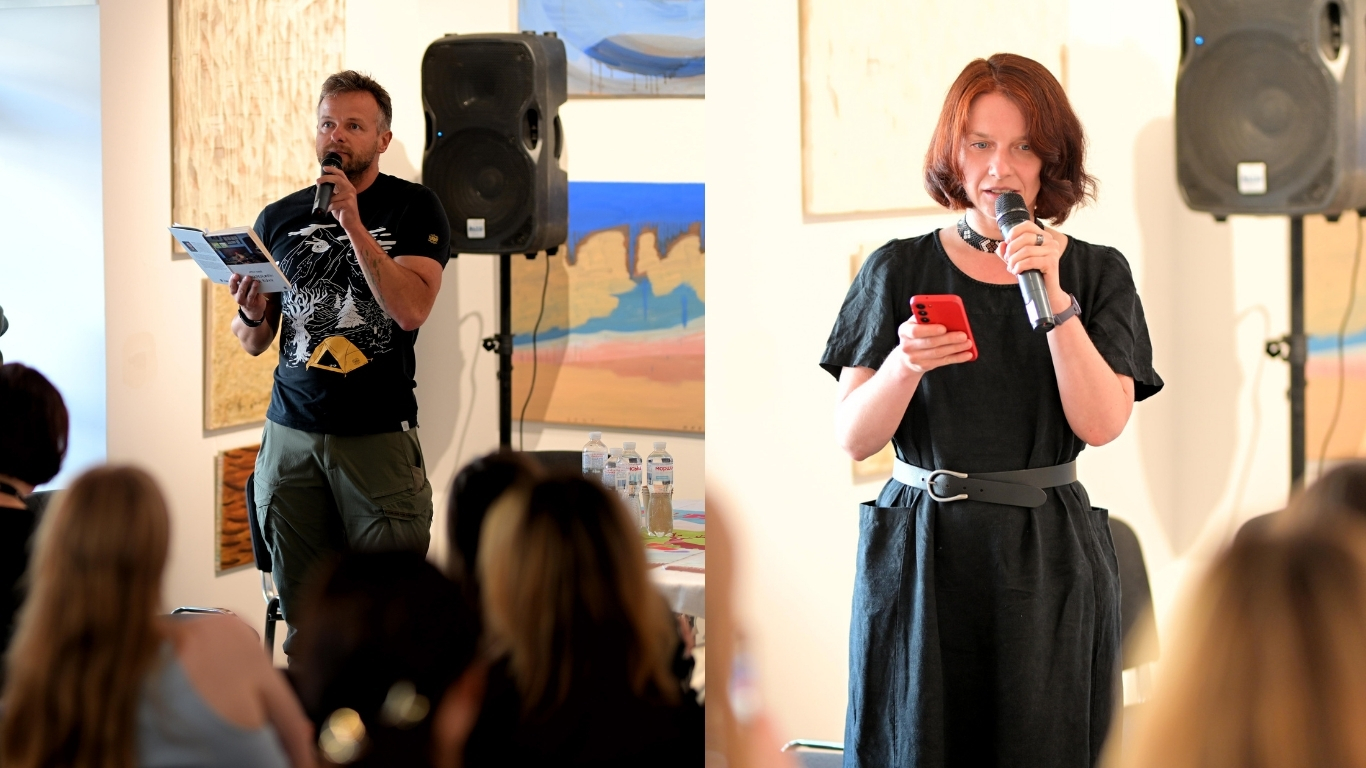 Artem Chapai, Maryna Ponomarenko
Artem Chapai, Maryna PonomarenkoTetiana Bezruk, Head of Civil Society Protection of the Human Rights Centre ZMINA, moderated the event.
Photo: Stas Kartashov. Docudays UA
If you have found a spelling error, please, notify us by selecting that text and pressing Ctrl+Enter.




